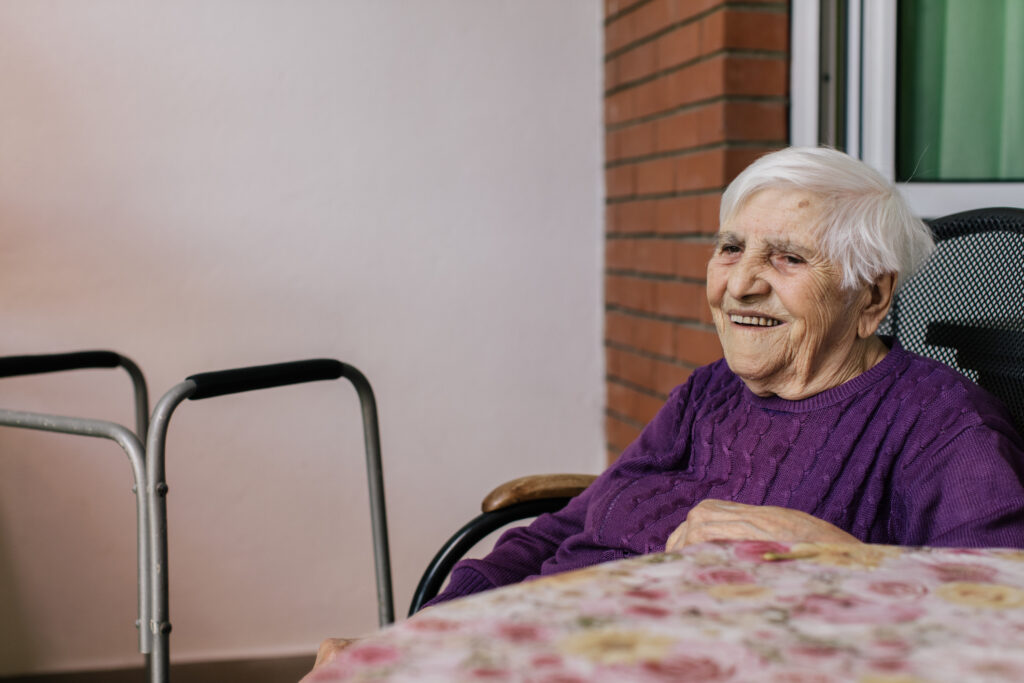
A Green Grant for a housing association
White Horse Housing has recently taken out a £90,000 Green Loan from Charity Bank. We also awarded it a £60,000 Green Grant and have agreed to loan the housing association a further which it will draw down as and when it needs it over the next few years.
We spoke to Steve Warran, Chief Executive of White Horse Housing, about how he found the process of getting the loan and grant.
Why is there such a need for White Horse Housing?
There’s a huge need for affordable housing across the whole country as house prices are incredibly expensive. Housing associations like ours are there to use whatever mechanisms we can to provide high quality, affordable homes for people in places they want to live, and a good service for them once they’ve moved in. We know all of our tenants by name. If someone rings to say, “I’m struggling with rent this week, Steve; what can I do?” then we can have a proper discussion.
Can you tell us about your Charity Bank Green Loan and Green Grant?
Like other housing providers, we need to get our properties up to a certain energy efficiency level by 2030, which is a bit of a challenge. When we applied for our main loan with Charity Bank, they made us aware of their Green Loan scheme. We could get up to £150,000 through the scheme, and as long as we used the money for energy efficiency work, £60,000 of that would be a grant, so we’d only have to pay back £90,000.
It was an extra bonus that we weren’t expecting and has worked really nicely. We’ve drawn the money down and used it, alongside some of our own money, to carry out work to 17 properties. They’re beautiful old stone cottages in a pretty village in Somerset, but they needed a lot of work to make them energy efficient. The grant has helped to stretch our budget, so we’ve been able to do more work. Most of the money went towards putting photovoltaic systems [PVS] on roofs and installing new windows.
I hope other banks take on board the need for making energy efficiency improvements to homes. The more schemes like Charity Bank’s, the better.
Do you know of any similar grants you could have applied for?
We put a bid in for the government’s Social Housing Decarbonisation Fund. We were successful, but the rules were so complex and the bureaucracy so intense, that we pulled out. We just don’t have the staff and the capacity to meet all those rules and regulations and get through all the bureaucracy. So, we pulled out and decided to fund most of the work ourselves.
How did you find Charity Bank as a funding provider?
They’ve been absolutely brilliant. Huge commercial organisations treat you like a number; you try having a decent conversation, but it doesn’t happen. That’s not the case with Charity Bank. The Director of Lending came to see us and had a look around our houses.
Because of the ethos of Charity Bank, they’re very supportive of what we’re doing. There’s a synergy between their ethos and ours. They treat us with respect and with a belief in what we’re doing. Other loan providers don’t fully understand housing associations and can be difficult to work with as a result. Charity Bank does understand us, which makes a huge difference.
John Murray, who oversaw the Green Loan scheme for Charity Bank and helped us through the application process, was fantastic. Only a couple of weeks ago, I took him out to the 17 homes and showed him what we’ve done. He seemed to be genuinely impressed with the work. He could see that we’ve put Charity Bank’s money into action and actually made a difference to people’s lives.
Why did you choose Charity Bank initially?
We use a consultant when we’re looking for a loan. He goes out to market with a prospectus of what we want, and then all the different banks come back, and he analyses what they’re offering, negotiates with them and fights to get the best deal.
He then does a report to us and our board and we decide which provider we’re going to go with. We were delighted with what Charity Bank was offering; it was very competitive. Actually, I’d call it a bloody good deal! We’re looking forward to drawing the rest of the money down and putting it to good use.
Were there any challenges to the loan or grant process that you hadn’t anticipated?
No. If anything, I was surprised by the ease with which it went through. We did have a very good solicitor on our side, who did quite a lot of leg work in terms of checking the terms and conditions and making sure that it was where we wanted to be.
We take out a lot of loans and the biggest issue is normally the loan agreement. It has to be quite long and complex for both parties, obviously, to protect each side, but Charity Bank’s was much more simplified. When either side had queries or questions, the other responded to get them resolved. So the actual process was very slick, to be honest.
The bit that hasn’t yet completed, which is taking more time, is the security aspect. We have to offer a number of properties as security against the loan. It’s taken the solicitors a long time to trawl through all the titles and the restrictions to agree which properties are going to be used and how much security there is. I’m hopeful that we’re not too far away completing now.
You’ve chosen to go interest free on your main loan for five years, is that right?
Yes. We’ll also only draw the money down as we need it because we don’t want to start paying the money back before the new houses are built, as ultimately the rent pays for the loan. Once we’ve drawn the money down, built the houses and the rent is coming in, we’ll have the money for when the capital repayments start after year five.
What would you say to another housing association that’s considering taking out a loan?
We speak to a lot of our peers and I will be recommending that they talk to Charity Bank if they have finance requirements, because of the ease of the way it all worked and the way we got the whole deal done and the agreement signed.
Are the tenants feeling the benefit of the energy efficiency improvements?
After a full year, we’ll get some real figures around energy use, which will prove that we have actually made a difference. In the meantime, I was talking to a couple of the tenants that have had a PVS installed at the beginning of this year, and both said it’s made quite a dramatic difference to their energy bills already.
If you need a loan for your housing association, please contact Charity Bank at [email protected].
About Charity Bank
Charity Bank is the loans and savings bank owned by and committed to supporting the social sector. Since 2002, we have used our savers’ money to make more than 1400 loans totalling over £605m to housing, education, social care, community and other social purpose organisations.
Nothing in this article constitutes an invitation to engage in investment activity nor is it advice or a recommendation and professional advice should be taken before any course of action is pursued.


